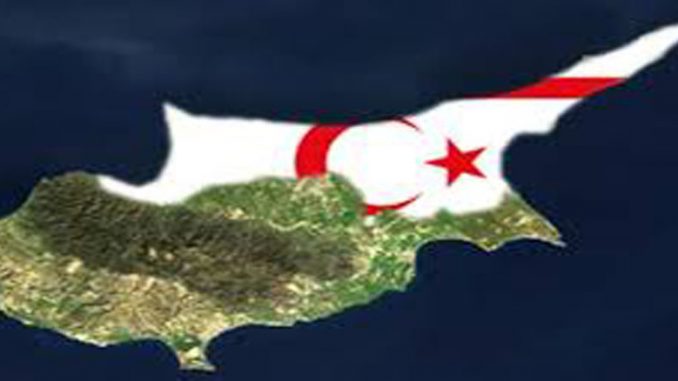
Foreign ministers from the three guarantor powers – Britain, Greece and Turkey – will take part in security discussions, alongside the Greek Cypriot and Turkish Cypriot leaders Nicos Anastasiades and Mustafa Akinci, Eide said on Tuesday on the eve of the start of the talks.
Experts say that without a change in Turkish and Greek Cypriots stances or a surprise initiative from the parties, reaching a final agreement will be difficult
“The main issues of disagreement still persist and there has been no serious indication that either of the two parties has changed their basic positions. The views of the Turkish and Greek sides regarding guarantees and security agreements are still incompatible,” said Dr. Mehmet Uğur Ekinci from Turkey’s Foundation for Political, Economic and Social Research, the SETA Foundation. According to Dr. Ekinci, statements issued by the president and prime minister of the Turkish Republic of Northern Cyprus (KKTC) point to indications that the Turkish side has become jaded as a result of the prolongation of the negotiation process.
“The Greek side’s continuation of its uncompromising attitude regarding guarantees and the presence of Turkish troops on the island may cause the negotiation process to collapse. Nevertheless, the recent attitudes of the president and the main opposition party in South Cyprus make me inclined to think that the Greek side could make last-minute concessions to avoid the entire collapse of the negotiation effort,” he added.
Prior to this summit, another five-party conference, with the participation of guarantor countries, took place in Mont Pelerin in February; however, the U.N.-backed talks drew to an inconclusive impasse.
A new round of talks at Crans-Montana comes after intense pressure from U.N. Secretary-General Antonio Guterres. With these open-ended discussions, talks regarding the Turkish and Greek Cypriots’ reunification are likely to reach an outcome.
“This conference is one about decision-making,” Turkish-Cypriot President Mustafa Akıncı said about the Crans-Montana talks following a meeting with President Recep Tayyip Erdoğan and Prime Minister Binalı Yıldırım over the weekend.
“I will set out on this journey with this positive thought in mind as well as cautious optimism,” Akıncı said on June 26, adding that a successful outcome at the end of the conference would not only be significant for all those living on the island but also for regional and world peace.
On the other hand, Greek-Cypriot President Nicos Anastasiades said on June 26 that he will attend to the talks with “complete determination and goodwill… to achieve the desired solution.”
Dr. Nikolaos Stelya from the Greek-Cypriot newspaper Kathimerini believes that the best scenario regarding the outcome of Crans-Montana would be a new resolution for a new summit.
“Without any surprising initiative taken by one of the included sides or international actors, it is hard to believe that we will have a final, positive result in Crans-Montana. It is most likely that the best scenario regarding outcomes will be a new resolution for a new summit in the fall of 2017,” Dr. Stelya said.
“There is still an atmosphere of mistrust between the two communities in Cyprus, where bilateral communication and measures for confidence building must be addressed. Both leaders have presented poor performance in terms of bilateral communication and measures for confidence building,” he added.
According to Dr. Stelya, a final solution in Crans-Montana depends exclusively on a surprising, unpredictable initiative regarding developments in the entire region, especially regarding natural gas resources on a local and international level.
The long-standing Cyprus reunification talks consist of six chapters; namely, the economy, the EU, property, governance-power sharing, territory, security and guarantorships. After months of negotiations, the Turkish and Greek Cypriot have not been able to reach an agreement on these key issues, including security.
The state of Turkey and Turkish Cypriots want the continuation of the guarantor system while Greece and the Greek Cypriots want its abolishment.
Greek journalist Stelyo Berberakis from Athens expressed that Greece, like Turkey, displays cautious optimism.
“The Greek government is seemingly supportive regarding a solution and we have observed during Turkish Prime Minister Binali Yıldırım’s recent visit to Athens that both Turkey and Greece are ready to take steps towards a solution,” Berberakis said.
“Yes, there is a disagreement on security and guarantor ships but I believe that these issues would be solved if the parties were to agree on other issues,” he added.
Berberakis believes that both the Turkish and Greek side are aware that the 1960s guarantorship agreement needs to be updated and both sides may find common ground regarding this issue during negotiations.
“I have been following the Cyprus issue for decades and at this time I am surprised to see that both sides are optimistic. Even one British journalist told me in recent days that there might be a solution this time,” he concluded.
If the Greek and Turkish were to reach an agreement at Crans-Montana, any deal that is reached would have to pass separate, simultaneous referenda in both communities. A previous endeavor by the U.N. in 2004 flopped when Greek Cypriots rejected the reunification blueprint.



